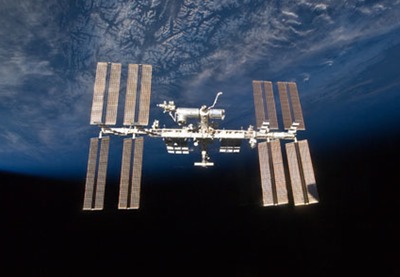Human spaceflight worth the costby Lou Friedman
|
| The cost and risk of human space flight are high. Extraordinary cost requires extraordinary value, and extraordinary risk requires extraordinary gain. |
The same issue came up in national debate following the tragic loss of the shuttle Columbia and its crew. Was human space flight worth the cost and risk inherent in its undertaking? The conclusion of that debate resulted in the “Vision for Space Exploration.” A grander purpose than technological achievement in Earth orbit was proposed, to have humans explore beyond Earth orbit, to go back to the Moon, and to prepare for the exploration of Mars.
Unfortunately, the program didn’t work out. It was not funded adequately, the exploration objective was reduced, and, finally, an independent commission of aerospace experts studied it and found it “unsustainable.”
The cost and risk of human space flight are high. Extraordinary cost requires extraordinary value, and extraordinary risk requires extraordinary gain. Repeated leadership studies, national commissions and political speeches have emphasized that the exploration of the unknown and achievements of flight faster, farther and longer provide the purpose worth the cost. But we can’t seem to agree how to make that happen; indeed, we can’t even seem to develop the rockets to take us beyond what we achieved four decades ago.
Looking at the political history of US human space flight decisions, the only two positive ones were based on international (or more precisely, geopolitical) considerations. They were Kennedy’s decision to take on the Soviets in a race to the Moon, and Clinton’s decision to engage the Russians in the International Space Station. (The shuttle decision by Nixon resulted in a flight program, to be sure, but was a negative decision to ratchet back space objectives and not let NASA build a space station or go beyond Earth orbit). It is also worthwhile to note that neither of these Presidents was interested in space science or exploration.
In the absence of an important geopolitical objective, the political system keeps coming up with busy work for humans in space, leaving it to the robots to conduct grand adventures on other worlds and to bring back interesting and valuable scientific results. That has happened again this past year as the Congress totally botched its consideration of the human space flight program. If I were a Tea Party enthusiast, I’d say it is time to take back human space flight from the politicians and make it once again for all humankind. But if I did that, I would be just as naive as those who think that we can accomplish space exploration without the government.
| My view is that if we space enthusiasts do not get our act together, humans will lose the space race to the robots. |
My view is that if we space enthusiasts do not get our act together, humans will lose the space race to the robots. Human space flight will continue for a while (as it did following the space shuttle decision), but public support will drop if human exploration is carried out without grand purpose. Unlike in the 1980s, the lack of new accomplishments in human exploration will be paralleled by the greater accomplishments in robotic exploration. And the danger is that the public will join those politicians who say, “Save money, let the robots do it.”
I really don’t want that to happen. After all, I am human and am rooting for humans to be faster, greater, and achieve more than the robots. But I am also pragmatic and believe that without a greater public will exerting influence on the politicians, we are not going to do better. We need to harness public support and express that public will for the same reasons that Carl Sagan and Bruce Murray did 30 years ago. Space exploration brings out the best in people and in nations, enabling great adventures and great discoveries for the benefit of humankind, and it needs to serve greater national purposes than just being good for space interests.
Debate on the future of human space flight is about to start up again—in a Congress now more concerned about cutting budgets than about embarking on new adventures. Some broader national consideration of how human space flight can serve America’s global interests is needed. These can be strategic—e.g. arms reduction, engagement of other nations, technological leadership, and economic growth—but the Apollo and ISS experience remind us that they must also be tactical: meeting an immediate national need.
This next paragraph is the spot where I am supposed to assert what the national need is. I can’t: I don’t have it yet, and I find that my fellow enthusiasts in the space community also don’t have it yet. In fact they have barely addressed it. Most of the space program opinions these days are about a favorite rocket, or contractor approach, or someone’s opinion of the most elegant technical system. That may work for sustaining some space activity, but it will not work for sustaining human exploration of other worlds.
The anniversary of the International Space Station should not be a look back ten years wondering why we built it, but rather should be a look ahead towards the next ten years, making ISS a platform from which to build global cooperation to explore new worlds and seek greater understanding of our own. I think there is a geopolitical objective in this last phrase that can sustain human space exploration, but we need to work on it.
